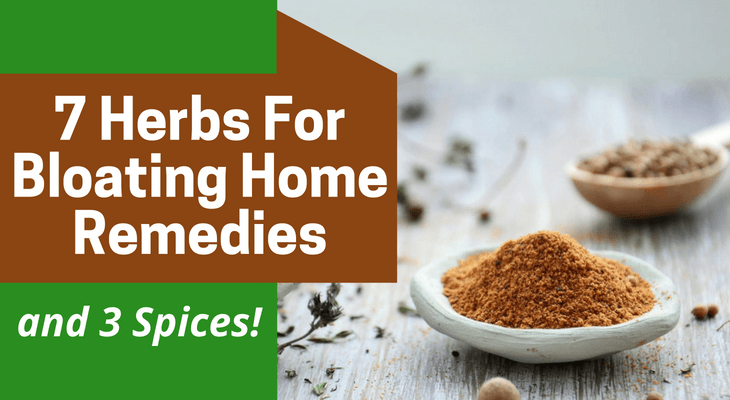 Bloating can make you feel blah. It’s uncomfortable and can sometimes be painful. It can leave you feeling full and makes you look and feel like you have a balloon stuck in your stomach. Bloating usually occurs after meals but sometimes you can end up bloated all day.
Bloating can make you feel blah. It’s uncomfortable and can sometimes be painful. It can leave you feeling full and makes you look and feel like you have a balloon stuck in your stomach. Bloating usually occurs after meals but sometimes you can end up bloated all day.
Causes are usually swallowing air (generally when eating gum or drinking with a straw), difficult to digest foods like beans and wheat, spicy foods which often irritate the gut, fizzy drinks, certain veggies and spices like onions, broccoli, cabbage, and garlic, and eating foods that digest quickly directly after eating slow to digest foods, for example, eating meat and brown rice and then eating fruit.
Women also tend to get bloated before their periods although this isn’t really bloating. Rather water retention which is caused by hormonal fluctuations. It can also be caused by eating too much salt or not drinking enough fluids, specifically water or herbal teas that are hydrating.
You can use herbs for bloating. They are versatile and delicious. They are also healthier than using medications for flatulence and indigestion which are not good for you in the long run.
The Best Herbs for Bloating
Here is a list of herbs that help with bloating and how to use them. It’s best to check with a homeopath, herbalist, naturopath, or your doctor about dosage if you want to use medicinal quantities as the amount can vary by your height and weight.
1. Parsley
Parsley helps for bloating by relieving constipation and indigestion. It also works for those times that you are struggling with water retention due to hormonal fluctuations because it has a diuretic effect meaning it makes you urinate more (1).
Ways to use parsley:
-
Add 1 tablespoon of dried parsley or 3 tablespoons of fresh parsley to a cup and top with hot water. Let it steep for 10-15 minutes before drinking it. You can strain the tea prior to drinking it if you prefer.
-
Parsley goes well with a variety of dishes. You can use it in meat dishes, use it with vegetables, in sauces, in soup, etc. Parsley is a part of almost any Middle Eastern dish and a variety of Italian dishes too.
Note: Don’t overdo it with the parsley as it may cause sodium retention in some people which can cause water retention and high blood pressure (2).
2. Celery
Celery isn’t really an herb although it can be used as one. Not only helps for water retention but can help to get rid of cramps and flatulence too. It has a crunchy texture when eaten as a vegetable so it goes well with softer foods and is great in salads.
The leaves can be used fresh or dried as an herb in soups, stews, and you can make a tea out of it the same way you would parsley. You can also eat the seeds.
3. Peppermint
Peppermint has a lovely refreshing flavor but is also known to be soothing. Peppermint soothes the digestive system and helps to relieve cramps and gas. It’s often added to medication and herbal remedies for indigestion and is even an effective treatment for IBS (Irritable Bowel Syndrome), both for diarrhea and constipation dominant IBS.
Ways to use peppermint:
-
Make a tea out of it, either by using the leaves in the above-mentioned ratios or by using store-bought tea bags.
-
Mint goes well with meat, especially lamb and can be used to flavor sauces, soups, and be used in salads, smoothies, and juices.
-
Mint can be used in sweet dishes too. While desserts should be kept to a minimum as they are often high in sugar and unhealthy fats, the occasional treat can be enjoyed. Just note that using natural sweeteners like dates, molasses, and raw honey is preferable. Too much sugar can also lead to bloating.
4. Fennel
Fennel is used to get rid of flatulence and is also effective against water retention. Here are a few ways to use fennel:
-
Chewing ½ a teaspoon of fennel seeds after eating is enough to improve digestion and to prevent indigestion (3).
-
You can make fennel tea using the seeds or the leaves.
-
Fennel can go with a variety of vegetables, meat, seafood, and is great in sauces, salads, soups, and sprinkled over savory toast toppings.
5. Basil/Tulsi
Basil, as it’s known in the Western world, has been used in Ayurvedic medicine for centuries as a remedy for indigestion and diarrhea. Basil also combats stress which can cause digestive problems and it has antimicrobial properties that can help to get rid of bad bacteria in the stomach. It tastes and smells amazing.
How to use basil:
-
You can make a tea out of basil but you might find it tastes better in food.
-
Basil is used in many different types of cuisines such as Indian, Thai, and Italian. It is the main ingredient in pesto and goes well with salad vegetables, stews, pasta dishes, meat, sauces, and stir-fries.
6. Chamomile
Chamomile is most often used to treat anxiety and insomnia, but it can also be used to soothe the digestive system and get rid of excess gas (4). Chamomile is usually used as a tea, but you can also use it in smoothies and can use it to make tummy soothing ice lollies in the summertime using honey, lemon, and ginger, all of which are good for bloating (5).
7. Dill
Dill takes care of indigestion, stomach cramps, gas, and water retention (5). It has a fresh and sharp flavor and can be used in the following ways:
-
As you noticed, all herbs can be turned into tea.
-
Dill goes well with eggs, yogurt-based soups and dips (buy yogurt that contains live cultures as they are probiotic meaning they add to the healthy bacteria in your gut), salads, soup, salmon, and cheeses.
Herbal Supplements for Bloating
Most herbs including the above-mentioned herbs are available as supplements. If you want to use herbs medicinally, supplements are an easy way of consuming a higher dose if you don’t like tea. They can be very concentrated, so speak to your doctor, pharmacist, naturopath, or homeopath before using them. Use them according to the instructions and never exceed the recommended dose.
Some Spices for Bloating
As a bonus, here are 3 spices to combat bloating. You can use them as tea, in various dishes, to compliment your herbal tea, or in desserts. They are all anti-inflammatory and antibacterial:
Tips and Precautions
-
Using herbs for bloating is natural and usually safe, but in medicinal doses the effects are powerful. Speak to your doctor before using herbs medicinally if you are pregnant, breastfeeding, or have any health conditions (especially those involving your heart, kidneys, or bleeding disorders), or are on any medication.
-
Take note of which foods cause you to bloat. Wheat, dairy, sugar, alcohol, beans, peas, and cruciferous vegetables like cauliflower, bok choy, and broccoli are common culprits. Healthy foods like vegetables and legumes shouldn’t be cut out completely without a good reason such as an intolerance or allergy.
-
Getting tested for food allergies can be helpful if you suspect an allergy or intolerance. Conditions like celiac disease and ulcerative colitis are harmful if not treated. Gluten and wheat consumption in these cases is actually dangerous.
-
If you are constantly bloated, and/or have bloody, black, frothy, slimy, or gray stools, see your doctor as soon as possible as these indicate underlying conditions or food intolerances.
-
Try to eat smaller meals and wait 2-3 hours before eating again so that your food has enough time to digest after eating.
-
Don’t drink anything for a half an hour after eating to minimize the burden on your digestive system.
-
Massaging your stomach can help with constipation, gas, and bloating (6).
If you enjoy tea, check out these teas for bloating. You can also try these remedies for water retention and bloating. Please let us know if these remedies worked for you and which are your favorites.








